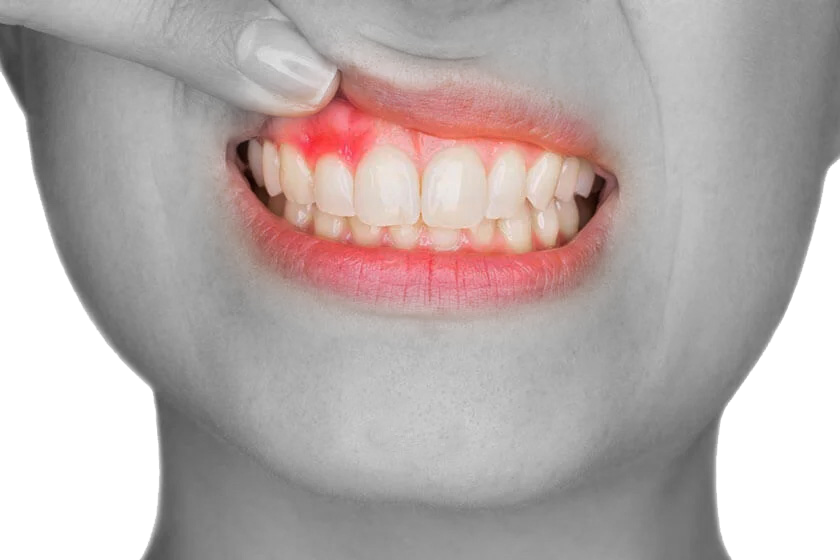How to prevent tooth stone formation?
It is possible to prevent the formation of dental stones, which can have serious consequences. For this, your teeth need to be brushed regularly. At the same time, it is extremely important to remove the food residues between the teeth and the tooth. In a sense, we can say that just brushing teeth is not enough. Regularly going to the dentist also allows to intervene in many different problems, especially dental stones, at an early stage. Therefore, you should visit your dentist at least every 6 months and have a general examination.
It is also important that the tooth brushing process is done correctly. You may be brushing your teeth regularly or even without interruption. However, if you are not brushing correctly, you will not be able to prevent the formation of tooth stones. You can consult your dentist and learn how to brush your teeth.
Does a tooth stone cause pain?
One of the most frequently asked questions is whether a tooth stone causes pain. A toothstone does not cause pain, but when it causes inflammation in the gums, tooth decay, or other diseases, it usually causes pain. A constant pain complaint can occur, especially if it causes inflammation in the gums. However, it may also be possible to feel pain during eating, biting or chewing. As a result, tooth stones can indirectly cause a pain complaint.
Things To Know?
Frequently Asked Questions About Periodontology
Dental cleaning is usually not a dangerous or damaging procedure that can damage teeth, contrary to what patients may think. Dental cleaning is the first step in the treatment and prevention of gum diseases. For this reason, individuals with or without gum disease should have regular check-ups and dental cleaning procedures in accordance with the recommendations of their physicians. After cleaning the tooth surface, there may be sensitivity in the teeth, but this situation recovers with the good care of the patient following the treatment.
Patients wonder how much budget they should allocate for cleaning in the event of the presence of dental stones. However, we cannot talk about the exact price. Even talking about a price range can be misleading for you. We should note that the dentist’s experience varies depending on various factors, such as how much tooth stone occurs in the teeth. However, when compared to many dental treatments, let us also convey the information that it requires a much lower budget. You do not necessarily have to set aside a high budget to ensure the cleanliness of dental stones. With a reasonable budget, you can ensure that the teeth are removed from the teeth and thus minimize the risk of many diseases and tooth decay.
Of course, the process of tooth stone formation in every individual is not the same. In general, we can say that tooth stones can form in 15 to 20 days. If the teeth are not brushed and the teeth are not cleaned between the floss and the teeth, it is possible that the plaques can turn into a tooth stone in such a short time. We can also say that plaque formation can occur quickly. Many people think that it takes years for tartar to form. However, this problem can occur in a shorter time and therefore both teeth and gums can be damaged in this situation.
Smoking: It is the most important risk factor in the development of gum disorders. Smoking also reduces the response to treatment. Hormonal changes in women make the gums more susceptible to disorders. During pregnancy, estrogen levels change during puberty, menopause, and menstrual cycles. The change in hormone levels affects the periodontal condition by increasing the number of certain bacteria. People with diabetes have a high risk of developing infections. In diabetes, which is known to adversely affect the defense mechanism of the host, the risk of periodontal disease is increased. Because various drugs affect the flow of saliva, they provide the environment for the formation of gum diseases by causing dry mouth. In addition, some ca canal blockers, some epileptic medications, and some birth control pills cause gum growth. The incidence of gum disease increases because oral care is difficult in patients with gum growth. Treatments for certain diseases, such as cancer or AIDS, can negatively affect oral health and cause gum disease. If oral hygiene habits are not acquired, plaque accumulates in the teeth. Plaque is not a food residue, it is an add-on created by bacteria. Plaque buildup is the main cause of gum disorders genetic predisposition is important in gum diseases. Patients’ responses to similar plaque accumulation are different. Oral care can be seen in the same individuals, some with very severe conditions in the gums, while others may be mild severe.
Bleeding of the gums spontaneously or while brushing, red, swollen and sensitive gums, painful chewing, tooth shaking, tooth loss or displacement, cold and hot sensitivity of the teeth, tooth extraction or elongation, bad odor and taste in the mouth, displacement of the teeth during biting Conditions such as separation of the teeth from the teeth, inflammation between the tooth and the gum can be caused by gum disease.


